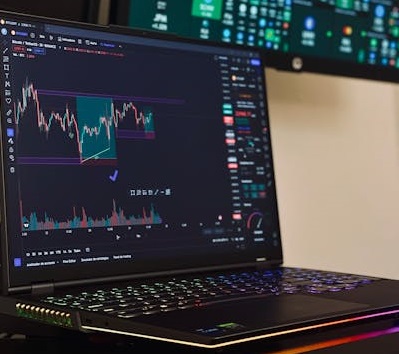Total assets under management (AUM) at the world’s 500 largest asset managers reached $128.0trn at the end of 2023, according to new research from the Thinking Ahead Institute.
Despite not yet reaching 2021 levels, this amounts to 12.5% annual growth and marks a significant recovery from the major correction the year before (AUM dropped by $18trn in 2022).
The research also reveals the continued evolution of active vs passive assets under management among the largest investment managers. For the first time, passive investment strategies now account for more than one third of AUM among the 500 largest firms (33.7%), though this still leaves almost two thirds of assets managed by the world’s largest managers in active strategies.
Asset class allocations have also evolved, with renewed growth of private markets. Core equity and fixed income remain the dominant asset classes, comprising 77.3% of total AUM (48.3% equity and 29.0% fixed income). However, this marks a slight decrease of 0.2% compared to the previous year, as investors turned to alternatives such as private equity and other illiquids in search of returns.
Partly down to the recent dominance of US equities as performance drivers, North America experienced the largest growth in AUM with a 15.0% increase, followed closely by Europe (including the U.K.) with a 12.4% rise. Japan saw a slight decline, with AUM decreasing by 0.7%. As a result, North America now accounts for 60.8% of the total AUM in the top 500 managers, with USD 77.8 trillion at the end of 2023.
At the very top of the rankings, US managers make up 14 of the top 20, and account for 80.3% of the assets of the top 20.
Turning to individual asset managers, the research shows that BlackRock remains the world’s largest asset manager, with its assets now above $10trn once more. Vanguard Group holds a strong second place at almost $8.6trn AUM and both remain significantly ahead of Fidelity Investments and State Street Global – ranked third and fourth respectively.
Notable risers in the full rankings in the last 5 years include Charles Schwab Investment, up 34 places to reach 25th place from 59th place. Geode Capital Management, also U.S. based, is up 31 places to reach 23rd place from 54, while Canada’s Brookfield Asset Management is up 29 places from 60th to 31st.
Jessica Gao, director at the Thinking Ahead Institute, said: “Asset managers have experienced a year of consolidation and change. While there has been a return to strong market performance, the last year has also seen forces of change.
“Macro factors have played a key part in the story, with notable highs in interest rates during 2023 exerting varied pressure on different asset classes, geographies and investment styles. As this now gradually switches to a rate cutting environment, equity markets are beginning to return positive performance also driven by improving expectations of earnings growth. Uncertainties looking ahead are now focused on geopolitical events and several major elections.
“We have continued to see net flows into passive strategies as they continue to offer a compelling value proposition, particularly in terms of lower fees and simplicity. Yet growing market volatility and issues with concentration, which typically highlights the need for expertise to outperform benchmarks, may be a source of caution from some allocators to passive market trackers.
“Meanwhile, asset managers continue to face major pressure to evolve their own business models. Investment in technology remains essential not just to maintain a market edge, but also to meet evolving client requirements and expectation in reporting and customer service. Increased competition, fee compression, and the growing demand for more personalised, technology-driven investment solutions are challenging traditional structures. We have witnessed notable successes of independent asset managers versus many of the more affiliated insurer-linked vs bank-linked asset managers.”
The world’s largest money managers, ranked by total AUM, in US millions.
| Rank | Fund | Market | Total Assets (US$) |
| 1. | BlackRock | U.S. | $10,008,995 |
| 2. | Vanguard Group | U.S. | $8,593,307 |
| 3. | Fidelity Investments | U.S. | $4,581,980 |
| 4. | State Street Global | U.S. | $4,127,817 |
| 5. | J.P. Morgan Chase | U.S. | $3,422,000 |
| 6. | Goldman Sachs Group | U.S. | $2,812,000 |
| 7. | UBS | Switzerland | $2,620,000 |
| 8. | Capital Group | U.S. | $2,532,813 |
| 9. | Allianz Group | Germany | $2,454,495 |
| 10. | Amundi | France | $2,250,226 |
| 11. | BNY Investments | U.S. | $1,974,322 |
| 12. | Invesco | U.S. | $1,585,344 |
| 13. | Legal & General Group | U.K. | $1,475,442 |
| 14. | Franklin Templeton | U.S. | $1,455,506 |
| 15. | Prudential Financial | U.S. | $1,449,673 |
| 16. | T. Rowe Price Group | U.S. | $1,444,500 |
| 17. | Northern Trust | U.S. | $1,434,500 |
| 18. | Morgan Stanley Inv. Mgmt | U.S. | $1,373,456 |
| 19. | BNP Paribas | France | $1,364,099 |
| 20. | Natixis Investment Managers | France | $1,288,581 |
Figures were the latest available as of Dec. 31, 2023
The Thinking Ahead Institute was established in January 2015 and is a global not-for-profit investment research and innovation member group made up of engaged institutional asset owners and service providers committed to changing and improving the investment industry for the benefit of the end saver. It has over 55 members around the world and is an outgrowth of WTW Investments’ Thinking Ahead Group, which was set up in 2002.










